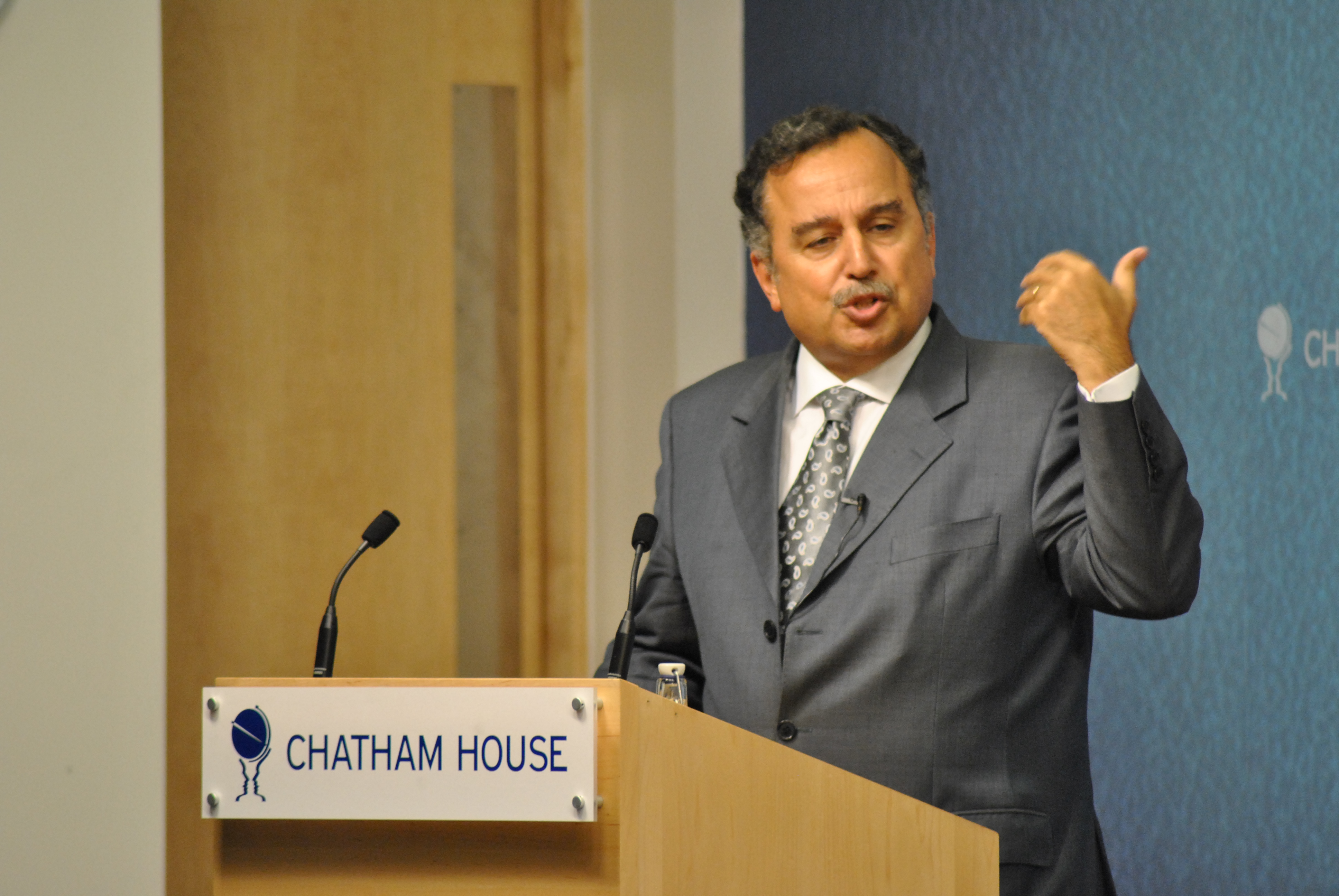
One of the Middle East’s foremost diplomats warned the region remains on the precipice of implosion — split along sectarian, cultural and political lines.
Nabil Fahmy, Egyptian foreign minister from 2013-2014, said on Tuesday, “We see a large number of non-state actors [and] ISIS is just one” threatening the stability of nation-states in the region, but the other factor—religion, modernity vs. revisionism, definitions of authority and a better life—are greatly influencing the future directions of those states.
Speaking at the Center for Strategic and International Studies, a Washington, D.C., think-tank, he added, “We need to find a comfort zone with power-sharing” in the Middle East—internally and with other countries. He called for serious dialogue—”quiet confidence-building steps”—to begin between Iran and Saudi Arabia and between Egypt and Turkey to defuse tensions.
Fahmy said that Egypt needed to be recognized in the region again not just as the first country to make peace with Israel, which he said still was in Cairo’s interest, but as a cultural, educational and political leader in the region. He termed Egypt historically as a nation of “new concepts,” citing its allowing women the right to vote before Switzerland, as an example. “Our leadership role was not about material assets.”
In Egypt, “we need now to see an active, vibrant political system” take hold—because it has a new constitution, parliament and president—as an example to other regional nations. “What’s the vision? What are we trying to achieve?”
Fahmy is surveying the hottest spots in the region over the five years since the Arab Spring called for a “two-state solution” to the Palestinian-Israeli conflict. “You can’t continue to have a people under occupation for a century,” referring to the Palestinians. He recommended a pullback to the 1967 borders between the parties; direct negotiations between Israel and the Palestinians under Egyptian auspices, with U.S. and Russian support; an end to Israeli settlement-building on the West Bank; and a U.N. Security Council resolution covering the year-long talks.
“I don’t see any end in sight” to the Syrian civil war. “There are no regional powers that can solve it. There are no superpowers that can solve it. . . . Nobody has a magic wand.” What is required is “a grand bargain” reached after a new administration takes office in Washington to stop “the worst humanitarian disaster in history.”
Likewise in Yemen, Fahmy said, the fighting there might “only be resolved by sense of fatigue” on the part of the Houthis and their Iranian allies and the government and its coalition of Arab Gulf State allies. Ending the conflict “can’t happen quickly.”
He said defining Libya today is difficult. “Is it a failed state or non-state,” divided between power centers in the country’s west and east. “Neither side,” he said, “can show conclusive authority.” The question of its future remains open, Fahmy said—a division along geographical lines, a single republic or a possible return to a monarchy. “Is there room for compromise?”





